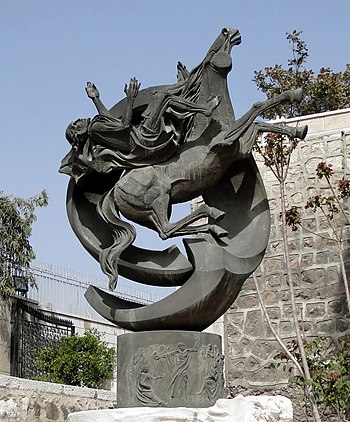The Christadelphian Agora comments
Reading 3 – Rom 3:9,10
“What shall we conclude then? Are we any better? Not at all! We have already made the charge that Jews and Gentiles alike are all under sin. As it is written: ‘There is no one righteous, not even one’ ” (Rom 3:9,10).
“Our guilt is great because our sins are exceedingly numerous. It is not merely outward acts of unkindness and dishonesty with which we are chargeable. Our habitual and characteristic state of mind is evil in the sight of God.
“Our pride and indifference to His will and to the welfare of others and our loving the creature more than the Creator are continuous violations of His holy law. We have never been or done what that law requires us to be and to do. We have never had delight in that fixed purpose to do the will and promote the glory of God. We are always sinners; we are at all times and under all circumstances in opposition to God.
“If we have never loved Him supremely, if we have never made it our purpose to do His will, if we have never made His glory the end of our actions, then our lives have been an unbroken series of transgressions. Our sins are not to be numbered by the conscious violations of duty; they are as numerous as the moments of our existence” (Charles Hodge).
Peter Forbes comments:
3:2 If the Jews had a benefit simply because the Word of God was committed to them how do we view that same word? Do we feel privileged simply because we can read Scripture freely in our own tongue?
3:3 Paul (2Tim 2:13) develops the principles of this verse for the benefit of Timothy. – We have noted before that David’s Psalm (32) is used by Paul to speak of the way in which God forgives. Reflecting on what David had done – committed adultery and murdered a man – we probably cannot think of two more evil crimes. But it is these two crimes which God forgave which forms the basis of Paul’s encouragement to us.

David and Bathsheba, by Henry Bone (died 1834). See source website for additional information. This set of images was gathered by User:Dcoetzee from the National Portrait Gallery, London website using a special tool. All images in this batch have been confirmed as author died before 1939 according to the official death date listed by the NPG. (Photo credit: Wikipedia)
3:4 The quotation ‘that thou mightest be justified …‘ from Psalm 51:4 marks the beginning of an appeal to the repentance of David after his adultery with Bathsheba – see the title of the Psalm. This incident in David’s life, as terrible as it was, marks the magnitude of the Father’s forgiveness towards a repentant sinner. More notes on this in Romans 4.
3:4‘that thou … art judged’ is a quotation from Psa 51:4 That Psalm is a Psalm speaking specifically of David’s sin with Bathsheba. Paul highlights that the Psalm, though specifically speaking to David, actually has a general application to all.
3:5 This is the first of a number of occasions when Paul asks a question which he then answers himself. The others are Rom 4:1, 6:1, 7:7

Painting by Rembrandt of Paul, one of the most notable of early Christian missionaries, who called himself the “Apostle to the Gentiles.” Paul, a Hellenistic Jew, was very influential on the shift of Christianity to Gentile dominated movement. (Photo credit: Wikipedia)
3:7-8 The “lie” that Paul is thinking about is the charge laid on him by others that he said “Let us do evil that good may come”.
3:8 The charge laid on Paul is similar to the hypothetical question he asks in Rom 6:1.
3:9 The teaching of Paul that we ‘are all under sin’ is quoted by Paul later – Gal 3:22–This is one of many times where Paul quotes elements of this letter to the Romans to other churches. Thus we see that Romans seems to be a letter that many of the other churches were aware of.
3:19 The phrase ‘every mouth may be stopped’ echoes the sentiments of Psa 107:42 thus demonstrating that the teaching that all men are sinners is not confined to the New Testament but is a clear Old Testament teaching.
3:23,24 These adjacent verses are at the opposite ends of the spectrum as far as the mind of man is concerned. One has to recognise the situation outlined in v 23 before one can be in the state described in v 24. Justification is only available to those who recognise their own personal need for salvation.
3:25-26 We should reflect carefully on the fact that God’s righteousness is seen in the death and resurrection of Jesus. Our God is not a vindictive cruel God. Rather, as shown by the way He responded to Jesus’ obedience, He is merciful – which we should appreciate anyway because of the way in which He describes Himself –Exo 34:6-7
3:31 To the Jew the idea that the Law of Moses was no longer the route to pleasing God (if it ever was) was a major problem. So they needed to know that ‘faith’ did not remove the need for obedience
Peter Cresswell comments
3:4 – Here we see a principle that we cannot ignore. Let God be true is a clear instruction to us not to make God into what we think He should be – not to impose on Him what we feel are the qualities of a god, but instead to open our minds to let Him show us what he really is in truth. We are still on the theme from the previous chapters which tell us how to avoid being like those whose worship is distorted. Let us take heed, as through this we can be justified by faith, as we are being prepared to learn next.
3:20 tells us that the law can’t save because by it there is knowledge of sin. This shows us that the law is inextricably tied up with the original curse – that we should know good and evil. At the end this curse will be removed and we will know only good. We do well to remember that this knowledge of good and evil is a curse, not a privilege. One day, those who are saved, will leave it far behind. One could argue that by God’s grace, we already have – 5:21, 6:7 – but in that day it will be actual. Evil will no longer be remembered or contemplated or come into mind. We must ask ourselves: Are we ready to leave behind the choice to do evil, without looking back, or do we still consider it a privilege?
Cliff York comments
Romans 3:9 – “for we have before proved both Jews and Gentiles, that they are all under sin” – in chapters one and two. Paul painted a word picture, first of the Gentile world – Romans 1 – then the Jewish world, which was even worse, for they had access to God’s righteousness – Romans 2.
v12-18 – Paul describes the cadaver of sin. As Paul’s scalpel opens up the body of sin, first the throat, then the tongue, lips, mouth, feet, and eyes are laid bare and examined – Hebrews 4:12-13. And Paul’s conclusion is given in v23 – “For all have sinned, and come short of the glory of God.” What does this tell us? We all need Jesus Christ. No-one will be in God’s Kingdom who has not entrusted his life and his salvation to the only name given among men whereby they might be saved – Acts 4:12.
John Wilson comments
Rom 3:25 “to declare his righteousness.” Christ, the bearer of the sins of the people. Not that Christ might be punished for others, but that God’s righteousness might be declared for others to see that they might be forgiven.
David Simpson comments
Rom 3:9-20 has at least 7 quotations from the Psalms, and one from Isaiah. Then in Rom 4 we can find 7 times when Abraham’s name is written. There is no doubt, is there, where the Gospel’s foundation is laid?
Valerie Mello comments
Rom 3:23: “For all have sinned, and come short of the glory of God.”
A reader writes: “even though our Lord did not commit one single sin – even of omission, he still Came Short of the glory of Yahweh – by his very mortality that he inherited by his birth of a mortal woman – meaning he had to make atonement by his death for his ‘falling short’ of the glory of Yahweh by reason of his birth by a mortal woman who, wonderful as she was, still possessed a sin-prone nature herself.”
My reply: In Rom 1, Paul pointed out mankind’s refusal to acknowledge God and God’s truth and how God gave mankind over to their lusts and the practice of sin. Then in Rom 2, Paul describes God’s judgment on both the Gentiles and the Jews. In Rom 3, Paul sums up his argument and makes it clear that all of mankind is under sin and that “every mouth will be silenced and the whole world will be held accountable to God.” With regard to God’s judgment there is no difference between Jew and Gentile, rich or poor, priest or beggar, businessmen or drunk, churchgoer and atheist, all have sinned and fall short of the glory of God. It does not say or imply that Christ because of his human nature fell short of God’s glory!
In Rom 3:22, we read that the righteousness of God is by faith in Jesus Christ to “all” – that is, mankind in general, Jews and Gentiles, “unto all and upon all that believe: for there is no difference” (cf. vv. 21,23). To fall short of the glory of God is to be in need of righteousness, a righteousness imputed to us by God through Christ (2Cor 5:21).
In Matt 5:20, we are warned that our righteousness must exceed those of the Pharisees. What Jesus is telling us is that it is not enough to submit to mere outward conformity as characterized by the Pharisees, but that it must be of both inward and outward conformity. Obeying the Law was more than just abstaining from killing, or stealing, etc., it also dealt with our inward being. So it is with us under the Law of Christ, and we can only exceed the righteousness of the Pharisees if we submit to Christ. Our own righteousness will never be good enough no matter how hard we try (cf. Isa 64:6).
Jesus was the only one who could lead a perfect life to the law of God in thought, word, and deed. Jesus’ mission was not simply to die on the cross. He had to be the Lamb without blemish, without sin. He had to live a life of perfect obedience, which he did and became the righteousness of God and, thus, could not have fallen short of God’s glory. Irrespective of Christ’s human sin-prone nature, he did not fall short, but continued in all things that were written in the book of the law to do them, otherwise, how could his righteousness be imputed to us, irrespective of our human nature (cf. 1Pet 5:10)? Christ was the perfect sacrifice and we can be made perfect only in him. We are to be Christ-like (cf. 2Cor 3:18).
Christ’s passive obedience (Isa 53:7) pays our sin debt and his active obedience of a sinless life gives us the perfection required by God if we submit (cf. Matt 5:48). What is required of us is active and passive obedience to Christ. Jesus came to undo what Adam did in committing and omitting, by which his character was tarnished and sin entered the flesh and passed on to his descendants – his sin was imputed to us (Rom 5:17-19). This was man’s fall from glory and made him in need of glory. Man was created in God’s image for God’s glory (1Cor 11:7; Isa 43:7). Christ came to restore for us what Adam lost. We must have Christ’s righteousness, active and passive, transforming us from sinners who fell short of the glory of God to saints of God who fulfill the glory of God in Christ, or God will not accept us.
Preceding articles
To find ways of Godly understanding
January 27, 417, Pope Innocent I condemning Pelagius about Faith and Works
Letter to the Romans, chapter 3
Letter to the Romans, chapter 4
Continue reading: Additional comments to the 4th Letter to the Romans
++
Additional reading
- Creation of the earth and man #4 Of the Sabbath day #2 Days 1,7,8 and 50
- Forbidden Fruit in the Midst of the Garden 4
- Necessity of a revelation of creation 3 Getting understanding by Word of God 1
- A god who gave his people commandments and laws he knew they never could keep to it
- Imprisonment and execution of Jesus Christ
- The seven last sayings of Christ discussed in the new edition of the Christadelphian
- Trusting, Faith, Calling and Ascribing to Jehovah #15 Exposition before the Creator
- God’s wrath and sanctification
- Condemnation of the World and Illustration of Justification
- Theologians and a promised Spirit to enlighten us
- Atonement and the race been bought
- Faith Alone Does Not Save . . . No Matter How Many Times Protestants Say It Does
- 138) Cheap Grace
- Christianity without the Trinity
- Not trying to make the heathen live like Jews #2
- A Living Faith #7 Prayer
- Growth in character
- Love is like playing the piano
- Forgiveness is a blessing for the one who forgives
- He who cannot forgive breaks the bridge over which he himself must pass
- Forgiveness always possible
- A man who cannot forgive others
- Answering a fool according to his folly
- Why we do not keep to a Sabbath or a Sunday or Lord’s Day #5 Not law binding
- When not seeing or not finding a biblically sound church
- Follower of Jesus part of a cult or a Christian
- Breathing to teach
+++
Further readings
- The creation of Earth and Man, the fall of Man, the cursed Earth, the redemption of Man, the resurrection of Christ, the resurrection of Man, the New Earth
- The Justification of Abraham
- Joseph and the justification of evil/sin
- Law and Grace
- Justification, Sanctification and Perseverance – By Grace through Faith
- Justification is by faith
- Why Justifying yourself is Destroying you!
- Are Good Works Necessary for Salvation?
- Faith itself not the cause of justification – Louis Berkhof
- Theories of Atonement: Recapitulation Theory
- Practical Theology
- Michael Horton Differentiates Law and Gospel
- Old and New Perspectives on Paul: A Third Way?
- Why the Law? Part 2
- The Justified Dead
- It’s not about you
- Reflective Paragraphs Week 4 – Romans 3
- Romans 3
- Daily Devotional – Romans 3:1-8
- Romans 3:9
- Daily Devotional – Romans 3:9-20
- Daily Devotional – Romans 3:21-31
- “And where does that leave our proud religious claim of having a corner on God? Canceled.” ~~Apostle Paul
- The Best Way to “Stand Up” For Jesus: Revisiting Romans
- What works was Paul talking about in Romans?
- Nullify the Torah?
- Under The Law
- Psalm 57 – As a Deaf Adder; A Sermon Preached at the Amarillo Primitive Baptist Church – Sunday, October 18, 2015
- Apart From The Law Of Righteousness
- Confessions of a Hypocrite
- You are without excuse
- Are we good?
- More Fashionable Fig Leaves
- Elihu – A Word for young leaders
- Salvation & Obedience
- Would Your Faith Save You?
- Let Go of the Ladder
- The Playing Field Is Level!
- My Utmost For His Highest: The Nature Of Reconciliation
- Obedience apart from Christ won’t justify
- That One Sin!
- The Only Martyr
- we’re all “heirs according to the promise” – but we all fall short
- Everybody needs Jesus
- Rub Your Eyes (Rondel Grande)
- Romans Devotional- Day 25
- The Anatomy Of God
- When Perfect Is Not A Good Thing – Part 1
- When Perfect Is Not A Good Thing – Part 2
- Is just-as-if-I’d-never-sinned the true meaning of justification?
- My Sinfulness
- If you love yourself….
- Good Behavior
- God is righteous and just (God is good 4)
- PT. 9 (The end) You are justified in Christ
- Day 11: I Declare My Righteousness Is In Christ Jesus
- Subjected For Our Sake.
- Guilt & Shame Misapplied
- God Glories in Making You Righteous
- Our Comforter is our Peace
- We Distinguish…(Part 5) — Active/Passive Obedience
- We Distinguish…(Part 6) — Moral/Ceremonial/Civil
- Those Who Practice Such Things Will Not Inherit the Kingdom of God
- Do I seek approval?
+++











































































